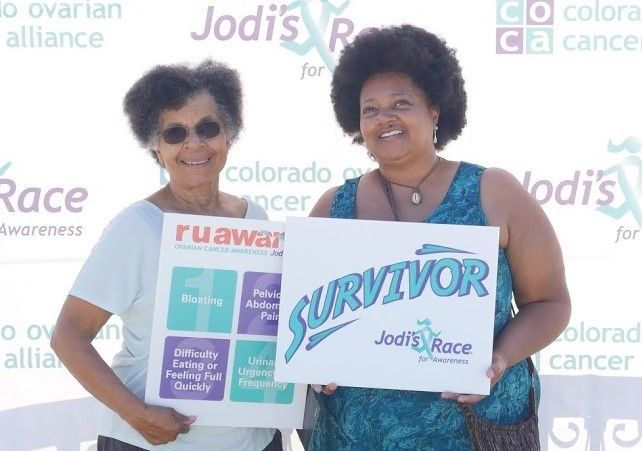Prognosis Outlook
Talking to Kids (Ages 15 and Under)
When to tell:
Younger kids want to know the prognosis as soon as possible. It is very common for a younger child to associate cancer with dying. It’s important to give them a general understanding of your prognosis outlook sooner rather than later. While it is difficult as a parent to consider causing your child worry, they may be more clever and resilient than you realize. Children look for any signs that might signal that you are sugar coating the situation. So be open and honest from the beginning.
What to say:
Reassure your child that not everyone with cancer dies and in fact, there are many long-term survivors. Also, be clear that no one that caused this cancer. Some kids often blame themselves for something they did in the past that may have triggered the onset of cancer. Allowing your child to ask questions or concerns about the outlook of cancer is necessary in helping them understand. Here are a few tips when talking to younger kids about the prognosis:
- If you feel it is appropriate, consider addressing the issue of dying even if your child doesn’t bring it up in conversation. This will make them feel more comfortable and allow you to take control of the discussion (leaving less to their active imagination).
- Remind your child you will always be there for them even if you experience some sick days along the way.
- Recognize and reassure your child that other family members around them are healthy and happy and able to help.
- Ask for help with the little things. Giving them a task might make them feel like they are more involved with helping you through this process
- Always check up on your children from time to time to make sure they aren’t experiencing any trauma or emotional distress.
- Also, address how they might feel about talking about your cancer. Some kids might not want or know how to tell their friends about a loved one having cancer.
- Reassure them by saying something like, “You don’t have to tell your friends about my cancer but, I will tell your teachers so that they understand what’s happening at home.”
Talking to Teens (Ages 15-20)
When to tell:
Along with younger children, teens also might be extra curious about the end result of your illness. Be straightforward and tell them the possible outcomes and don’t be afraid to tell them that you are not sure exactly what is going on. Questions about the prognosis might arise earlier than later. But allowing them to understand the facts might help them feel less afraid.
What to say:
Address some misunderstandings that your teen might have picked up through the internet or other people. Tell your teen that your team of doctors are doing everything possible to give you answers about the cancer. Some teens might have deeper concerns and questions with death. Answer these questions as best as you can and don’t be afraid to refer your teen to other family members if they are having a tough time discussing the topic. Here are some tips and phrases on what exactly to say:
- Misunderstandings are common when discussing cancer. Address that just because somebody you know or heard of died of cancer does not mean everybody dies from cancer.
- Explain that there are several different cancers and they all function differently.
- Always reassure your child that they will be cared for and loved regardless of what might happen.
- Surround them with a support group of friends and family to show them they can turn to anyone for reassurance and questions about this process.
- Showing consistent support is key to making your teen feel safe.
- Also, show them that you’re heavily interested in their life and how things are going outside of the cancer world. Let your teen know that you want him/her to enjoy being a teenager and to live their life to the fullest.
- Remember that teens are extra difficult when it comes to dealing with their emotions and behaviors. If your teen lash out or engages in risky behavior, know that it is not a reflection of how much he/she cares for you.
Talking to Adult Children (Ages 20 and Up)
When to tell:
You might feel especially vulnerable when chatting with your adult children about the prognosis of your cancer. Turning to your adult child with concerns of your prognosis outlook is okay. Be careful not to bombard them with a ton of worries because remember, they are coping too. However, they are old enough to understand the possibilities of your prognosis so don’t be afraid to lean on them for
What to say:
It’s okay to lean on your adult child for emotional support through this process. But, also be open to any questions they might have about your cancer and the potential outcomes. Discuss how the cancer might affect your relationship with each other. Always express love and sensitivity to your adult children because they might be overwhelmed like you. Here are some suggestions on what to say:
- Recognize that the relationship may go through some changes. Taking on the role of the caregiver might seem overwhelming. So, always give them the option.
- Also, implement any resources on caregiving that might help them with this process. Consider COCA’s Resource Guide that discusses support for caregivers on page 39.
- Emphasize self-care and the importance of taking care of themselves while juggling multiple responsibilities.
- Discuss any concerns with medical treatments, financials, and care-taking when addressing the long-term.
- Depending on the cancer, genetic factors may have a substantial effect on the next generation. It’s important to see a genetic counselor sooner than later to consider early detection and potentially alleviate some stress.
- Communicate with doctors on potential cancer risks for your adult child. Let your adult child know they are not alone and go together to see a genetic counselor.
- Build a support network so that everyone can pitch in and help guide you and your adult children through this journey.




